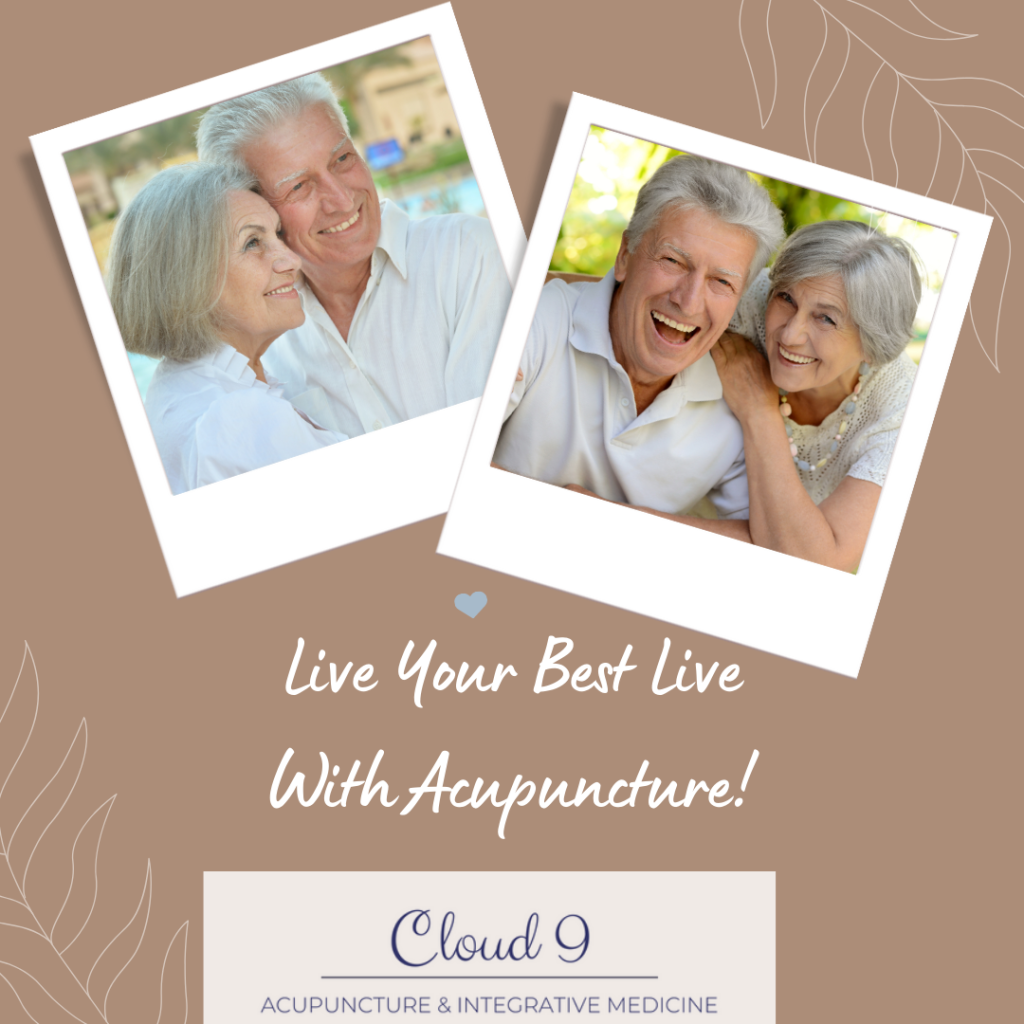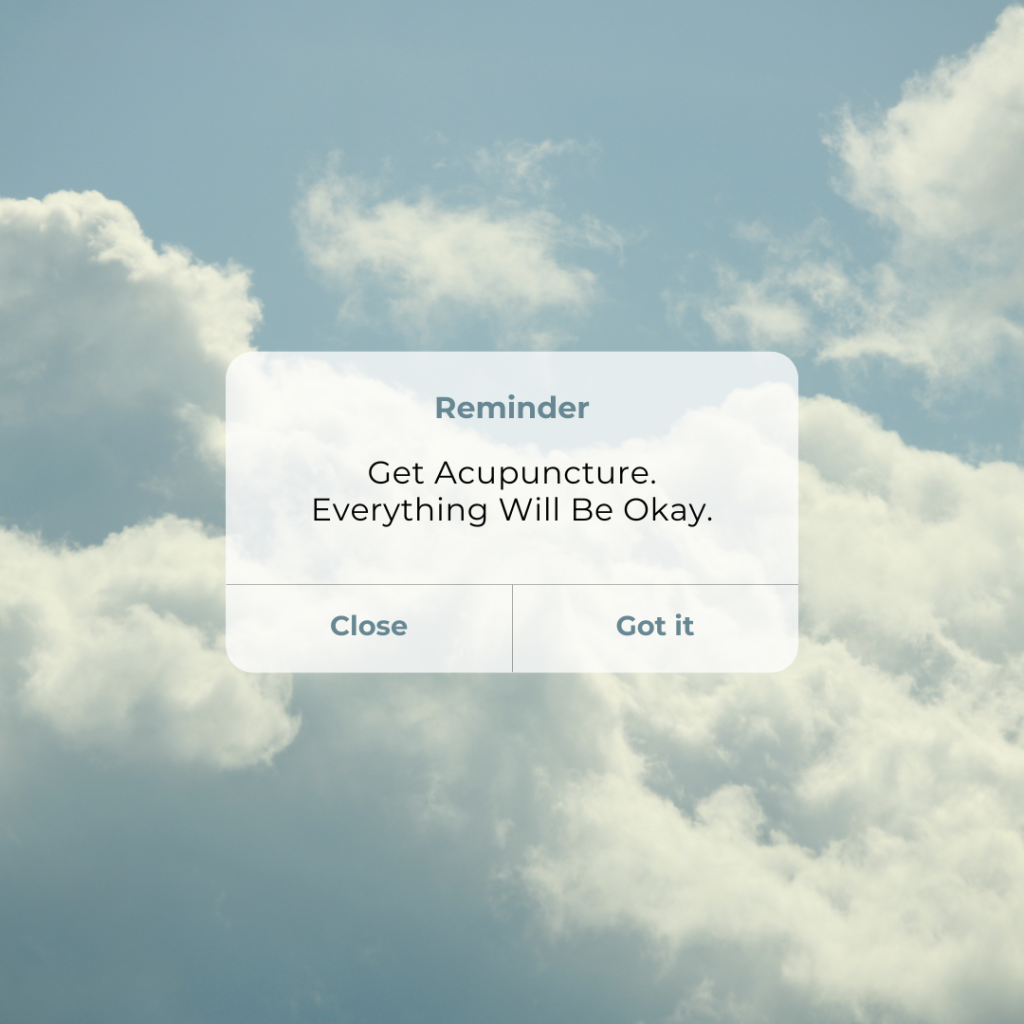- Cloud 9 Acupuncture & Integrative Medicine22 West Padonia Rd. Suite A-203
Timonium, MD 21093 Follow Us!
PTSD
Healing Trauma with Acupuncture

Trauma can be emotional or physical and carries a weight with it for those who suffer from a traumatic event and the longer post-traumatic stress that can come from it. Fortunately, we live in a time where help is available. Since acupuncture subscribes to the whole mind/body/spirit healing approach to balancing energy and achieving complete wellness, it makes sense that acupuncture could be a helpful tool to treating various forms of trauma and its impact on both the mind and body. continue reading
Avoid Side Effects of Anti-Depressants with Natural Alternatives
Anxiety and Depression are at all time highs over the last few years. Mental health has become a crucial focus in health care and many folks have newly sought out relief with anti-depressant medications.
However, many do not enjoy the unwanted side effects of anti-depressants. Whether it’s weight gain, fatigue, a completely flat affect (never feeling “big emotions” of anger, sadness, or joy), low libido, or impotence, patients seek out alternative options.
Acupuncture helps with anxiety and depression by improving the neurotransmitter response in the brain, and providing a balancing effect to the different bio-hormones in the body. Dr. Parks has extensive experience treating anxiety, depression, and PTSD using acupuncture, helping patients to either reduce or eliminate medications and side effects.
For the last 3 years, Dr. Parks has added an additional therapy to help called Brain TapTM, a headset that utilizes light and sound with guided meditations designed to create new synapses and open new pathways in the brain, allowing patients to experience faster and deeper states of relaxation using similar techniques to hypnosis and neuro-linguistic programming. Most patients report becoming so relaxed that they drift asleep during their session, especially when combining acupuncture with the Brain TapTM headset.
Certain vitamin injection therapy provides a significant reduction in inflammation within the brain and nervous system, which has created vast improvements with anxiety and depression.
Each patient is considered on a case by case basis as to what therapies will be most appropriate for their treatment goals, after a thorough medical consultation and intake with Dr. Parks, with over a 90% success rate in reducing anxiety and depression naturally.

The Best Way to Find the Best Acupuncture Clinic for You
Whether you’re suffering from low back pain, or neuropathy, infertility or headaches, you’ll want to find the best acupuncture clinic that suits your needs the best.
The very best way is to call and speak with the receptionist of your clinic of interest and ask them if they have experience in or specialize in your primary condition you are seeking care for. While most acupuncturists have trained extensively for 3-5 years in graduate level study acupuncture programs, and receive a Master’s degree or a Doctorate (also known as a Acupuncture Physician), it’s still best to work with an acupuncturist or clinic that has experienced success in treating your condition.
Some questions you can ask when you phone a prospective acupuncture clinic:
Has the acupuncturist treated my type of condition before?
What is the success rate of treating my condition at this clinic?
How many years of experience does the acupuncturist have?
Do you offer any additional therapies beyond acupuncture to help address my condition?
What can I expect during my first visit? (Is it just a consultation, or will I receive treatment that day?)
Most of our patients are referred by word of mouth, from former patients who have also experienced success. Our acupuncturist Dr. Laura Parks does specialize in chronic, complex conditions and has been practicing for over 13 years. She received her acupuncture doctorate from Five Branches University, and acupuncture masters from Maryland University of Integrative Health (formerly Tai Sophia). Dr. Parks has been treating Fertility patients for over 13 years and specializing in neuropathy for over 4 years, with over a 85% success rate.

Becoming Resilient to Stress
I once had to write an essay on the book, “Why Zebras Don’t Get Ulcers” by Robert Sapolsky and I can summarize it to this day… The sympathetic nervous system elicits the “fight or flight” response. A third response is to freeze in place.
Modern humans often freeze in place, stall. Usually, we do not fight others or run (flight) like zebras run away from lions, but we just sit or stand in place, doing the same exact thing physically we were doing prior to the stress trigger. The cortisol elevates with the stressor, the adrenaline surges… and we sit (or stand) in place instead of using that fuel to launch into a sprint away from a predator (lion, tiger or bear, oh my!)
Zebras have no choice. They run or they die, or they run and die. Either way, they really must run. In turn, their bodies burn off the adrenaline surge and other stress hormones. This is why they do not get ulcers.
However, humans do get ulcers, because their ancient wiring “fight or flight” response designed to keep them alive during times of war with neighboring tribes, or being hunted by predators, simply goes off at very inopportune times… like when we’re stuck in traffic, or getting flack from our boss, or a friend phones with bad news … goes off, constantly, daily, sometimes multiple times per hour. This creates a cascade effect with the nervous system, the neuro-endocrine hormones and creates inflammation, extra body fat, cardiovascular disease, digestive disorders, anxiety, panic attacks, headaches, autoimmune disease, insomnia, and more. Everyone responds to stress differently.
Most people respond very well to acupuncture because it brings the nervous system and endocrine system into balance. Over time, with regular acupuncture treatment, patients become less triggered by stress as the “fight or flight” response becomes much more self-regulated.

Acupuncture Helps with PTSD Symptoms

While commonly connected to those who have served in the military, post-traumatic stress disorder or PTSD, can impact anyone who has suffered from violence or emotional trauma. The National Institute of Mental Health defines PTSD this way, “Post-traumatic stress disorder (PTSD) can develop after exposure to a potentially traumatic event that is beyond a typical stressor.” According to the U.S. Department of Veterans Affairs approximately 12 million adults in the U.S. suffer from PTSD during a given year. continue reading